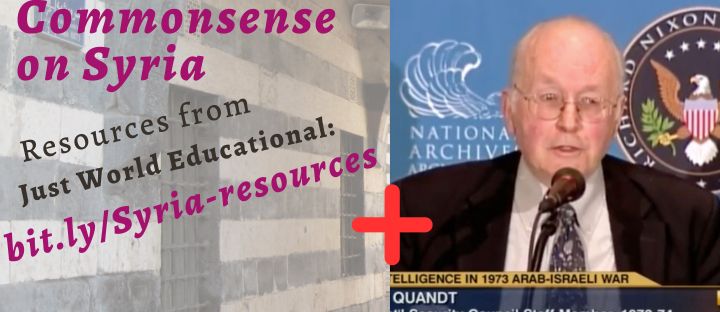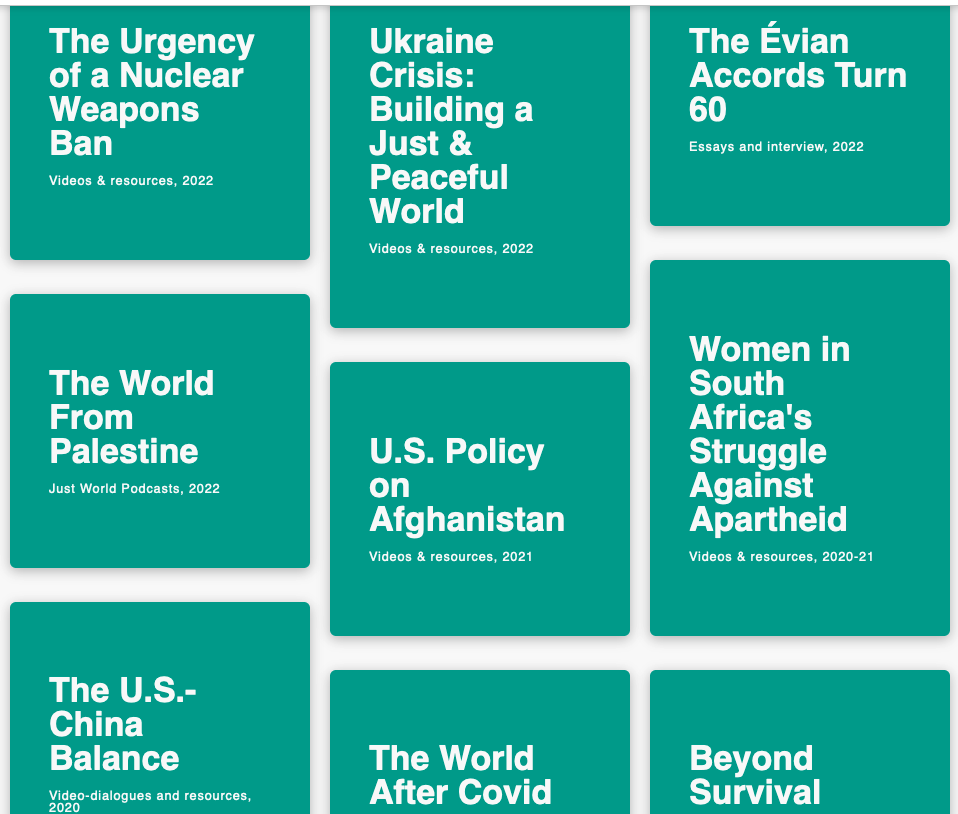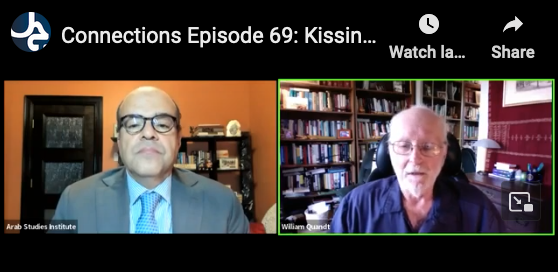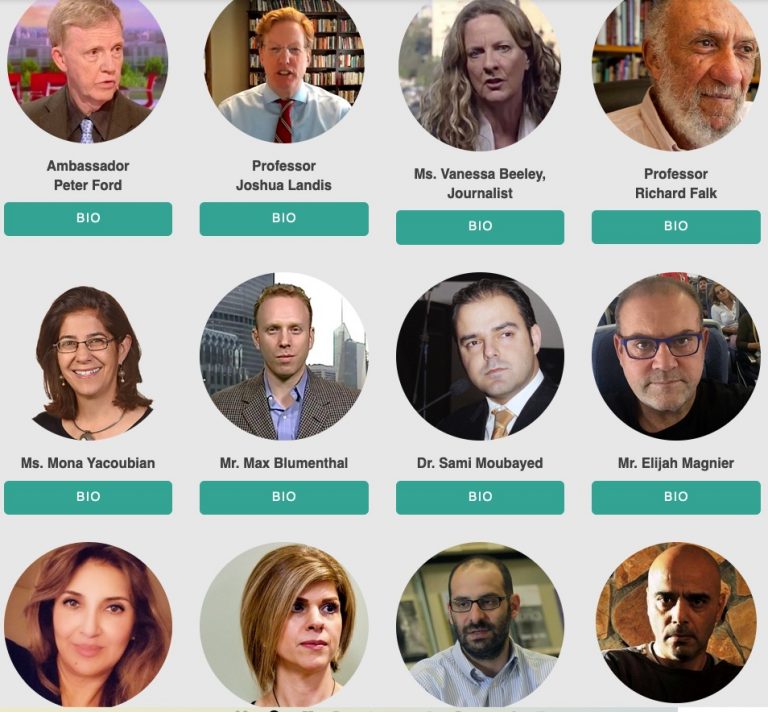Here on the Just World Ed website we have numerous great educational resources that we offer at no cost to the inquiring public. Only a few of these are posted, or even reported on, about here on the blog. The best place to find our resources is via this portal page on our website. Scroll down to find all of them!
This week, I want to announce that we have uploaded a number of significant new text-transcripts to our site. Five of these are transcripts of some of the rich conversations we had in Spring 2020, during the 9-part “Commonsense on Syria” webinar series we presented then. (Scroll on down here to see which transcripts those are, and to see quick and easy links to them.)
The other transcript we just uploaded is not from one of our projects, but is from a 73-minute conversation that Mouin Rabbani of Jadaliya held recently with the Middle East scholar and former two-time National Security Council staffperson William B. Quandt. (Full disclosure: Quandt is my spouse for nearly 40 years.)
William Quandt’s 1973 war transcript
The Quandt-Rabbani conversation centered on the role played in Middle East policymaking by Henry Kissinger, for whom Quandt worked, 1972-1974, with a heavy focus on the role Kissinger played during the 1973 Arab-Israeli war. Rabbani also had several questions about Quandt’s later stint in the White House, 1977-79, when he was working for Pres. Jimmy Carter and NSC advisor Zbigniew Brzezinski.
Given that the 50th anniversary of the 1973 Arab-Israeli war will be commemorated within the coming months, we thought this interview will have significant lasting value. So with Mouin Rabbani’s permission we produced (and lightly edited) a transcript of the whole conversation, the PDF of which you can download here.
Of particular interest there, researchers might like to note Quandt’s descriptions of:
- signs of a possible nuclear alert, or steps toward an alert, in Israel in the early days of the 1973 war (pp. 5-6)
- the global nuclear near-crisis that erupted later on during a rocky time in implementation of the first general ceasefire agreement (p.7), and
- the differences he noted in the worldview and competences of Kissinger and Brzezinski (pp. 13-14.)
But there’s a lot else of interest there, too!
Syria transcripts
When we presented our “Commonsense on Syria” project, back in the very first weeks of the Covid pandemic, we were delighted to be able to pioneer doing this project via the webinar format that soon thereafter came to dominate so many aspects of everybody’s learning lives. We attracted a great array of specialists on matters Syrian who represented a broad range of different views, including those seldom or never represented in the Western corporate media. And we were proud that we could model on-air how people with widely differing takes on Syria could still discuss those differences in a calm and collegial manner.
Along the way we created a great Online Learning Hub to present the records of all the webinars, along with some supplementary materials. Only much later did we come to see the value of preparing and presenting transcripts for key online-learning events like those. So we have now gone back to the “Commonsense on Syria” project and prepared transcripts for the following sessions:
- Session 4: The role of Western Media, featuring Max Blumenthal
- Session 5: Israel’s role in Syria, featuring Dr. Sami Moubayed
- Session 7: Syrian refugees and IDPs, featuring Tima Kurdi and Dr. Omar Dahi
- Session 8: Palestinian refugees in Syria, featuring Drs. Waddah al-Khatib and Faeda Totah, and Amb. Peter Ford
- Session 9: Sanctions, reconstruction, and public health in Syria, featuring Drs. Issa Chjaer and Adnan Azzouz.
We realize we have a bit more work to do– to prepare transcripts of the other sessions and also to organize all the contents of the Syria Online Learning Hub in a more user-friendly way. Stay tuned for news of those improvements!
One of the great ways we used the webinar format during that project was to run run quick spot polls of the attendees, which generated some fascinating and pretty thought-provoking results. You can get a flavor of how some of that that polling went, in this blog post from April 2020.




